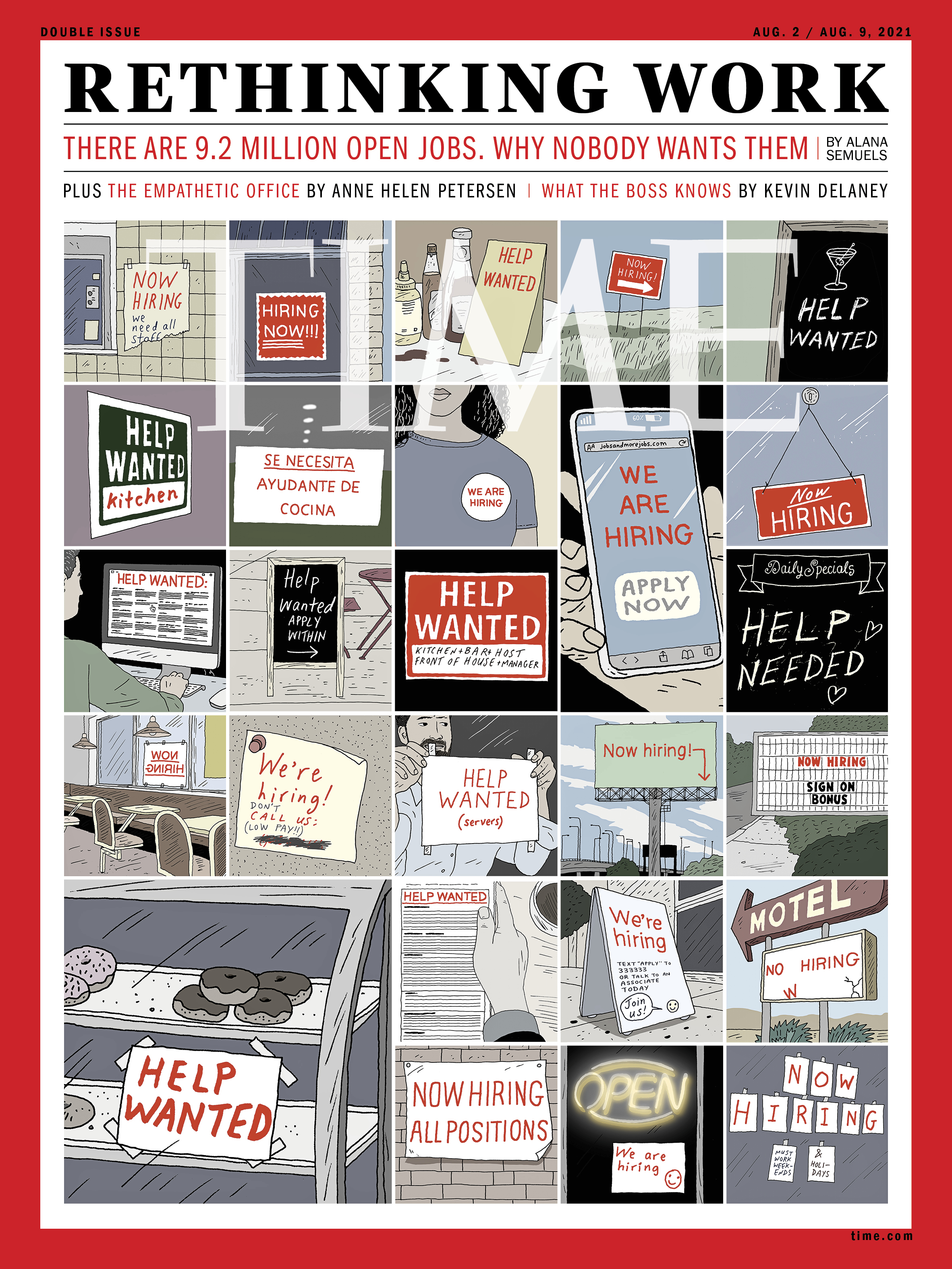
Get the exclusive story behind the cover |
| The Cover Story | | Hourly Workers Are Demanding Better Pay and Benefits—and Getting Them |  |  | | By Alana Semuels | | Senior Economics Correspondent, TIME | Back in May, it was still unusual to see handwritten signs at fast food restaurants reading "We All Quit! Closed!" So when I saw a picture on Twitter of those words at a Wendy's drive-through, my interest was piqued. As an economics reporter at Time, I've followed the stagnant wages and disappearing benefits for America's wage and hourly workers for years. The prevailing theme has long been that workers have less and less leverage. But more than a year into a pandemic in which many of them had to keep working, it seemed like something was changing. For the latest cover of TIME, I interviewed workers who decided that their low-paid, dangerous jobs weren't worth it anymore, including airport workers who staged a walkout for higher wages knowing it would get them fired, and nurses setting a record for the longest strike nationally in more than a decade. I even joined a local Facebook group in Wayland, Michigan, to reach one of the many workers of a Little Caesar's there who all quit at the same time, posting a sign reading 'Sorry We All Quit!' on a job application on the door. As the weeks went on, similar worker actions mounted across the country, according to a strike tracker set up by Cornell University. Some of the workers who spoke with me have found better jobs than the ones they left, and others are still searching. But the act of low-wage workers quitting without another job lined up is notable and suggests that the employer-employee relationship is finally changing to benefit workers. For years, job-seekers have had little choice but to take whatever employers offered as the pool of low-wage workers grew and middle-wage jobs declined in the wake of the Great Recession. Now, employers say they can't find enough workers at the wages they're willing to pay. For at least a moment, workers have the upper hand. This hasn't happened since the post-World War I era, when workers staged huge strikes for better pay and benefits—in 1919, one-fifth of the nation's workforce participated in strikes. Companies raised wages and added perks—many of which they took away during the Great Depression. Now, as companies try to recover after pandemic shutdowns, they're again offering perks to attract workers. It's too soon to tell if these changes are permanent. The bargaining power of workers has been eroding for decades—even strikes across the country might not be enough to get it back. | | Read the Story » | | Share the cover story | | | | | |
|
| |
|
| |
|



Commentaires
Enregistrer un commentaire
Thank you to leave a comment on my site